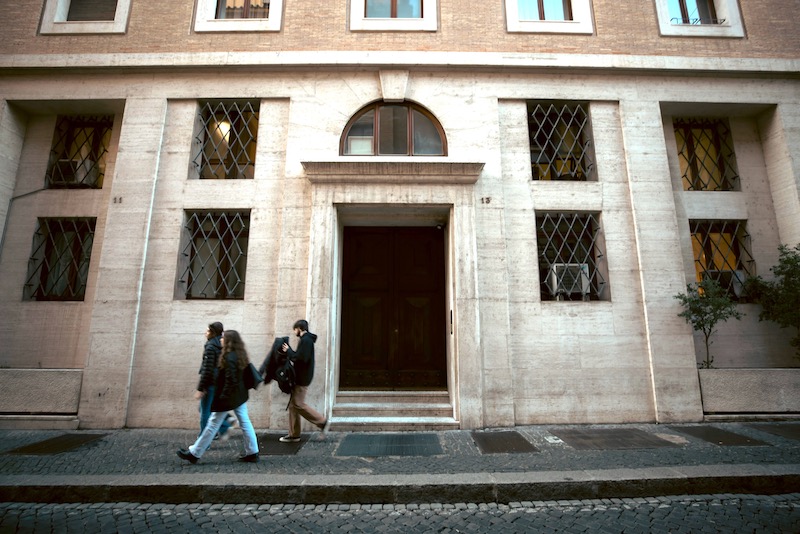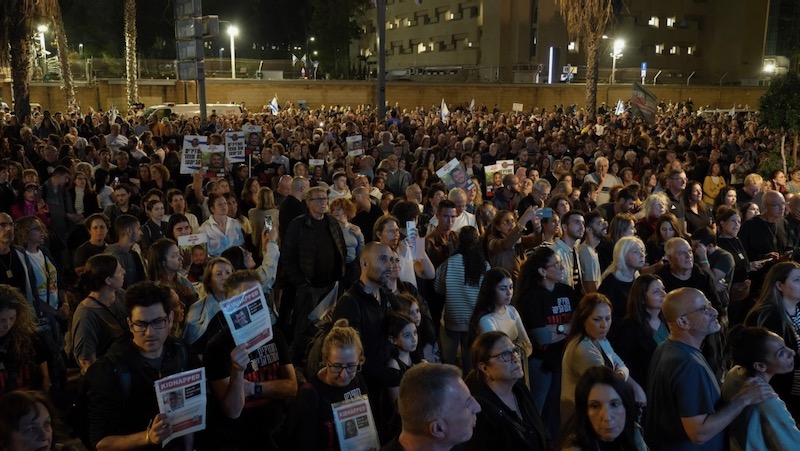There are growing fears that aid sent to Gaza during the Hamas-Israel temporary ceasefire is not reaching Gaza city, according to the new head of Caritas Internationalis.
Alistair Dutton, sworn in as secretary general of Caritas Internationalis in June, said: “A limited amount of aid has gone into Gaza but apparently it has all gone down to the south.”
He estimated “200 or 300 trucks of aid” had reached south Gaza. “But this is about 40 per cent of what the daily aid was in ordinary time [before the war].
“Gaza has been under blockade for so long that it needs nearly 500 trucks a day just to supply daily needs, including the fuel required to power electricity generators.”
On Monday – day four of the ceasefire – Dutton spoke to Caritas Internationalis staff in Jerusalem. “There are no shells raining down now so people in Gaza city can at least go outside and walk around. They are better able to assess the damage to homes and buildings.”
The bulk of Caritas’s Middle East staff – around 90 people – live in Gaza. “Our staff are emotionally drained,” said Dutton, who recently paid a visit to Caritas staff in the Holy Land.
“We’ve set up call trees telecommunications notification chains). Each member of staff in Jerusalem or Bethlehem is responsible for keeping in touch with one or more members of staff in Gaza. Unfortunately, that means they spend their life endlessly trying to ring the same number because they can never get through. About one in 50 calls connects.”
He observed: “For staff in Gaza that’s an essential psychological life line – a sense of the world hasn’t forgotten and there is a bit of decompression time.” Dutton added: “But it is emotionally traumatic for the staff calling into Gaza because as soon as you hang up, you are left with the question,‘Is the person I’ve just spoken to still alive?”
Last week, a second Caritas staff member was killed in a bombing attack on Gaza. Issam Abedrabbo,, a pharmacist for Caritas Jerusalem, died during a bombardment with his two sons. Last month Viola, a 26-year-old staff member of Caritas Jerusalem was also killed alongside her husband and infant daughter.
Dutton said 14 members of the family of a third member of Caritas staff had been killed last weekend. “That’s what they are living with day in day out at the moment,” he explained. At the moment, water supplies in the region are “very intermittent” said Dutton, recalling his recent visit. “The power was off most of the time I was there and communications were down for hours at a time.”
Alistair Dutton visits Caritas in Kyiv.
The Caritas team in Jerusalem and Bethlehem are currently transferring money for aid to staff members in Gaza.
Dutton said: “We transfer money via the banking system to people we have registered in Gaza.”
Caritas Jerusalem and Caritas USA (Catholic Relief Services) use this system to enable Gazans to purchase the resources they need, including food, from local vendors.
“If people are able to identify a way of buying things, we are still able to get in cash transfers so aid can be distributed locally.”
He emphasised that this was “very ad hoc, a question of buying what’s available and handing that out. It is not doing anything in a planned or systematic way.”
For real change, a long-lasting ceasefire is essential, he told The Tablet:
“For people to be able to do anything meaningful you need a sustained peace. Nothing can happen without a ceasefire. Everything else is just window-dressing.”
On his recent visit to Caritas in the Holy Land, Dutton met the health minister of the Palestinian Authority on the West Bank and the mayor from the area adjoining Bethlehem.
“His message was expressed by most of the people I met,” said Dutton. “It was, ‘We expect all your governments to insist on an end to the fighting and care for the people who are suffering. We want peace’.”
Yet when peace comes, the region will still face a humanitarian crisis.
“We are now going into winter,” said Dutton. “People in Gaza effectively left their homes in what they were wearing. At night it gets very cold. It is essential that we get people under cover and with warm clothing and bedding. They’ll obviously need the food and water to survive day by day.
“After the war, we’ll need to restore water and electricity widely and ensure that communications are reliable. We also need to get the health service back up and running again.”
A notion that the local population could just move to south Gaza ignored the lack of local infrastructure, added Dutton. “There is nothing down south to move to. There is no town planning, no provision of services down there,” he said. “There’s no established camps or anything down there.”




 Loading ...
Loading ...